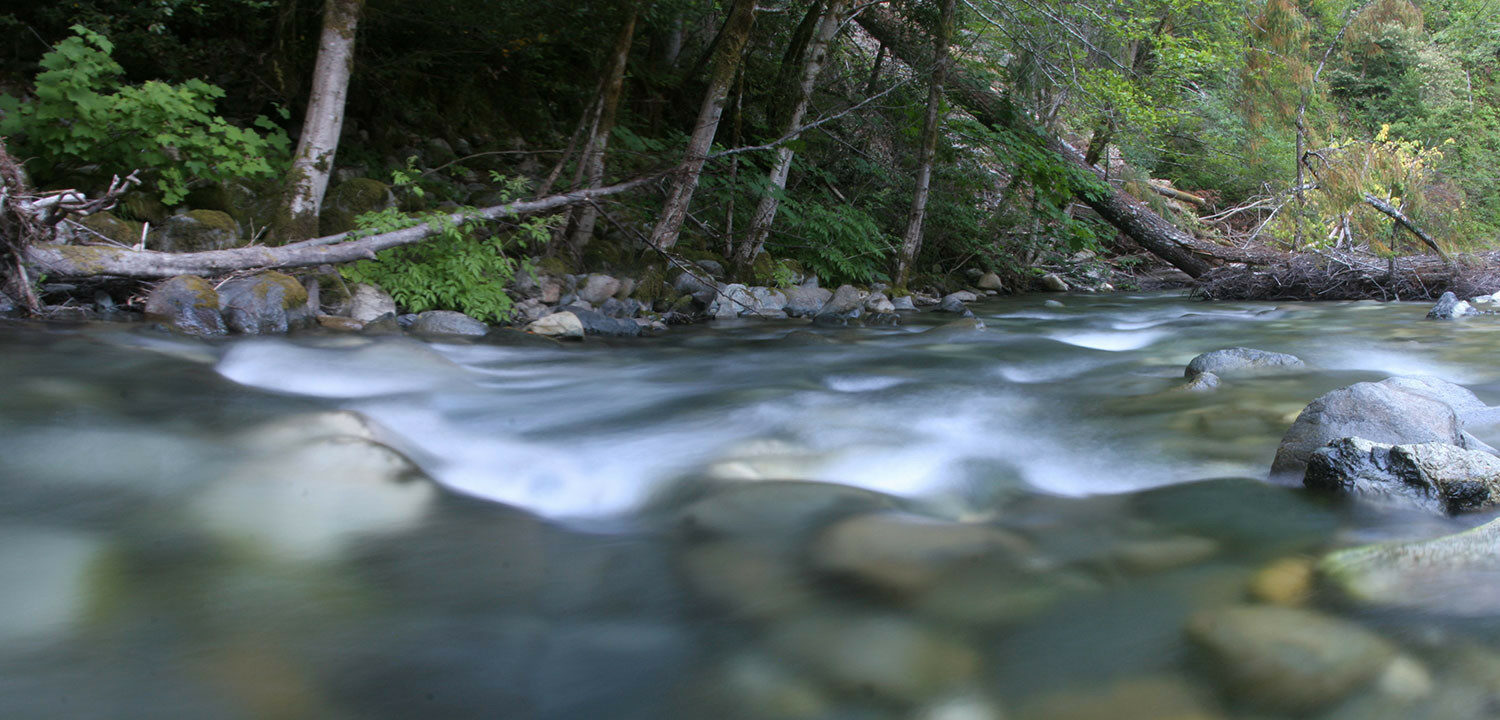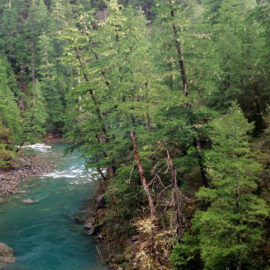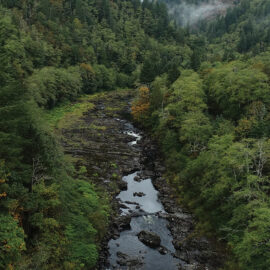The Board of Forestry voted unanimously to increase stream buffers in the Rogue-Siskiyou region.
A small piece of the historic agreement between Oregon’s timber industry and conservation groups moved forward last week.
On June 3, the Oregon Board of Forestry voted unanimously to adopt temporary rules that significantly increase stream buffers on small and medium salmon streams in the Rogue-Siskiyou region.
The vote marks the first formal action by a state agency to implement the reforms the agreement called for in February.
According to Bob Van Dyk—Wild Salmon Center’s Oregon and California Policy Director and one of the agreement’s principal negotiators—the temporary rules would become permanent with the passage of a pending bill at the Oregon Legislature. Wider forested buffers around streams help keep streams cooler in the summer, and are one of the key measures needed in Oregon to help wild salmon weather climate change.
“This is good news for cold, clean water,” says Van Dyk. “It gets us ahead of the curve on applying the rules, and it shows the commitment of all parties to the substance of the accord.”
The forest reform legislation was introduced this spring, but a vote was delayed by the legislative session’s premature end in February, following a Republican walkout. Though not yet scheduled, there may be a special session in the coming months.
The legislation calls for the two sides to drop dueling ballot measures and instead pass a set of reforms detailed in a memorandum of understanding.
These reforms, announced by Governor Kate Brown on February 10, are more important than ever, with public health a top priority during the Covid-19 crisis. If enacted into law, the reforms would significantly improve the protection of people and drinking water from aerial spray of pesticides, requiring advanced noticing for residents and increased buffers on spraying near homes, schools, and drinking water sources critical to public health. The legislation would also set the stage for a major revision of stream protections across all state and private forest lands. According to the federal government, outdated logging practices along salmon and drinking water streams in Oregon don’t meet the basic needs of protecting coastal streams from pollution.
“We asked the Board of Forestry to take action now, and they did,” says Van Dyk.
Now, he says it’s time for the Oregon Legislature to follow through and make the rules permanent.
Says Van Dyk: “The new pesticide rules are especially urgent, given that so many residents on the borders of forest lands are staying close to their homes.”




